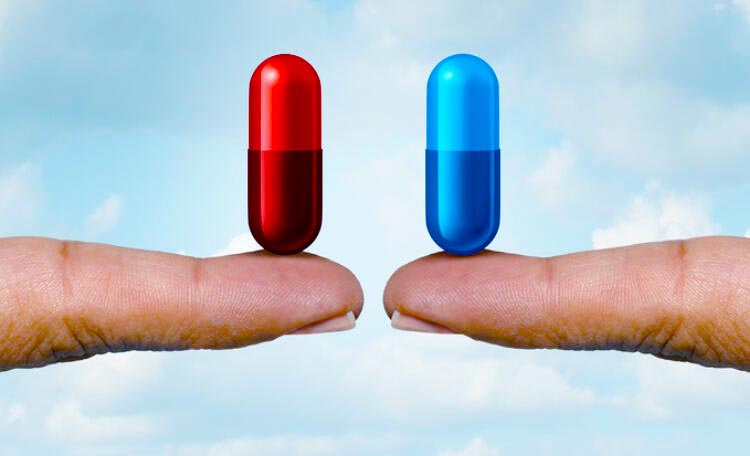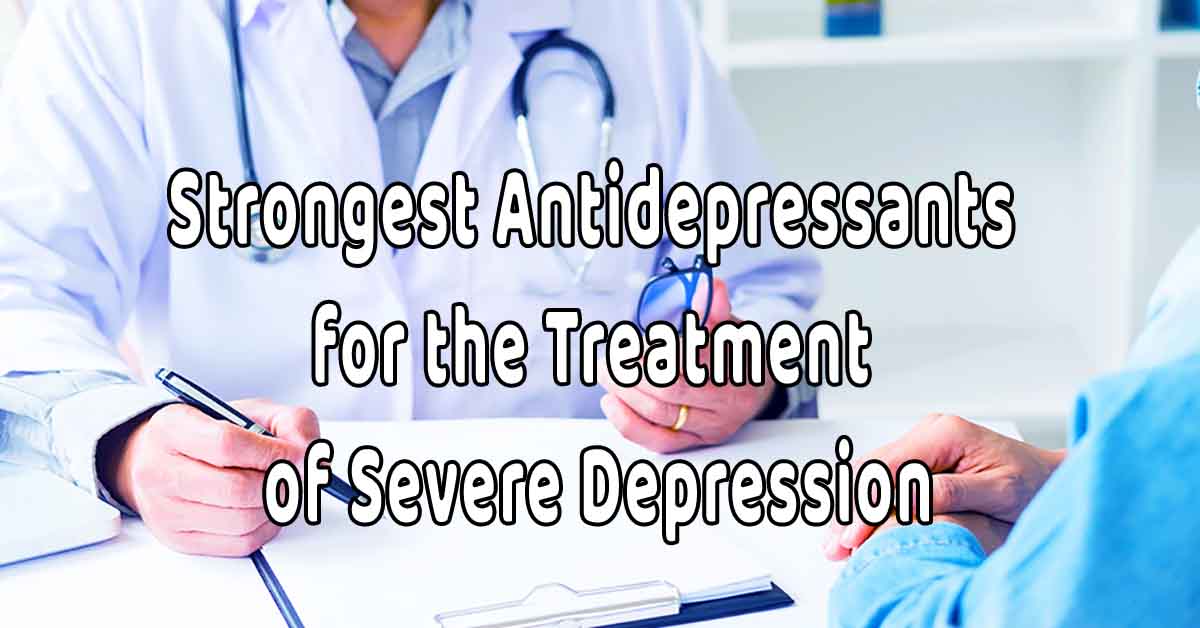Strongest Antidepressants for the Treatment of Severe Depression
In the pursuit of mental well-being, finding an effective and strongest antidepressant for Severe Depression Treatment is crucial. When traditional therapies like talk therapy aren’t enough, medication can become a valuable tool in the treatment plan. This article aims to the strongest antidepressants available for the treatment of severe depression, their benefits, potential side effects, and considerations for patients. Including the commonly prescribed Strongest Antidepressant for Severe Depression Treatment.
Right Antidepressant
Choosing the most suitable antidepressant can be an individual process, as each person’s response to medication varies. However, certain antidepressants have proven to be effective in providing relief to those experiencing severe depression. After reading this you will be able to choose the Strongest Antidepressant for Severe Depression Treatment. Let’s dive into the details:
1. Selective Serotonin Reuptake Inhibitors (SSRIs)
SSRIs, such as fluoxetine (Prozac) and sertraline (Zoloft), are commonly prescribed as a first-line treatment for severe depression. They work by a neurotransmitter associated with mood regulation, increasing serotonin levels, in the brain. Becoming one of the best Strongest Antidepressants for Severe Depression Treatment for some patients.
Commonly prescribed SSRIs
- Citalopram
- Escitalopram
- Fluoxetine
- Fluvoxamine
- Paroxetine
- Sertraline
Some key benefits of SSRIs include:
- Effectiveness in alleviating depressive symptoms.
- Lesser side effects than older antidepressants.
- Potential for use in a wide range of patients.
- Relatively lower risk for overdose.
“Because SSRIs are so effective and so well-tolerated, they are frequently the first option.” – Dr. Jane Smith, Psychiatrist.

2. Serotonin-Norepinephrine Reuptake Inhibitors (SNRIs)
SNRIs, such as venlafaxine (Effexor) and duloxetine (Cymbalta), are another class of antidepressants commonly employed in the treatment of severe depression. By increasing the levels of both serotonin and norepinephrine, SNRIs provide a dual mechanism for enhancing mood. Also considered the Strongest Antidepressant for Severe Depression Treatment.
Common SNRIs:
- Duloxetine
- Venlafaxine
- Desvenlafaxine
Here are some notable aspects of SNRIs:
- Efficacy in managing severe depressive symptoms.
- Potential advantages for people suffering from persistent discomfort.
- Fewer sexual side effects compared to SSRIs.
- Potential withdrawal symptoms upon discontinuation.
Important Note: It is important to taper off SNRIs under medical supervision to minimize withdrawal effects.
3. Tricyclic Antidepressants (TCAs)
TCAs, such as nortriptyline (Pamelor) and amitriptyline (Elavil), are an older group of antidepressants. Although less commonly prescribed today due to their potential side effects, TCAs can be effective in treating severe depression.
Tricyclic antidepressants
- Amitriptyline
- Desipramine
- Doxepin
Key considerations for TCAs include:
- Potential efficacy in treatment-resistant depression.
- Higher risk of side effects, such as drowsiness and dry mouth.
- Possible complications for individuals with certain medical conditions.
- Strict monitoring of medication levels to avoid overdose.
Important Note: TCAs require careful consideration and monitoring due to their higher risk of side effects.
4. Monoamine Oxidase Inhibitors (MAOIs)
MAOIs, such as phenelzine (Nardil) and tranylcypromine (Parnate), are typically prescribed when other approaches have been unsuccessful. These antidepressants work by inhibiting the breakdown of certain neurotransmitters.
Common MAOIs
- Isocarboxazid (Marplan)
- Phenelzine (Nardil)
- Selegiline (Emsam)
- Tranylcypromine (Parnate)
MAOIs have specific considerations:
- Potency in treating severe depression and atypical depression.
- Food and drug interactions that require careful dietary restrictions.
- Regular blood pressure monitoring to avoid a hypertensive crisis.
- A healthcare provider should closely supervise combinations with other medications.
“MAOIs can be highly effective, but caution is necessary due to their interactions with certain foods and medications.” – Dr. Michael Johnson, Psychopharmacologist.

5. Atypical antidepressants
Atypical depressants, as their name suggests, differ from typical antidepressants because they have a different mechanism of action.
Atypical antidepressants increase levels of dopamine, serotonin, or norepinephrine in the brain.
They have multiple mechanisms of action and are often prescribed when other antidepressants do not improve symptoms of depression.
Atypical Antidepressants
- Wellbutrin SR, Wellbutrin XL, others (bupropion)
- Remeron (mirtazapine)
- Nefazodone
- Trazodone
- Viibryd (vilazodone)
- Trintellix (vortioxetine)
Common side effects of atypical antidepressants are:
- Dry mouth
- Dizziness
- Light-headedness
- Nausea
- Fatigue
- Nervousness
- Diarrhea
- Headache
Conclusion
When facing severe depression, finding the most potent antidepressant can make a significant difference in improving daily life. Selective Serotonin Reuptake Inhibitors (SSRIs) and Serotonin-Norepinephrine Reuptake Inhibitors (SNRIs) are often the first choices due to their effectiveness and tolerability. Tricyclic Antidepressants (TCAs) and Monoamine Oxidase Inhibitors (MAOIs) are considered when other options have been exhausted, but they come with heightened side effect profiles and the need for careful monitoring. Always consult with a healthcare professional to determine the best approach for your specific situation.
Suggested:
Which medications are best for anxiety and depression?
What are 12 signs of Severe Depression in Women?
The Best Medication for Bipolar Depression and Anxiety

